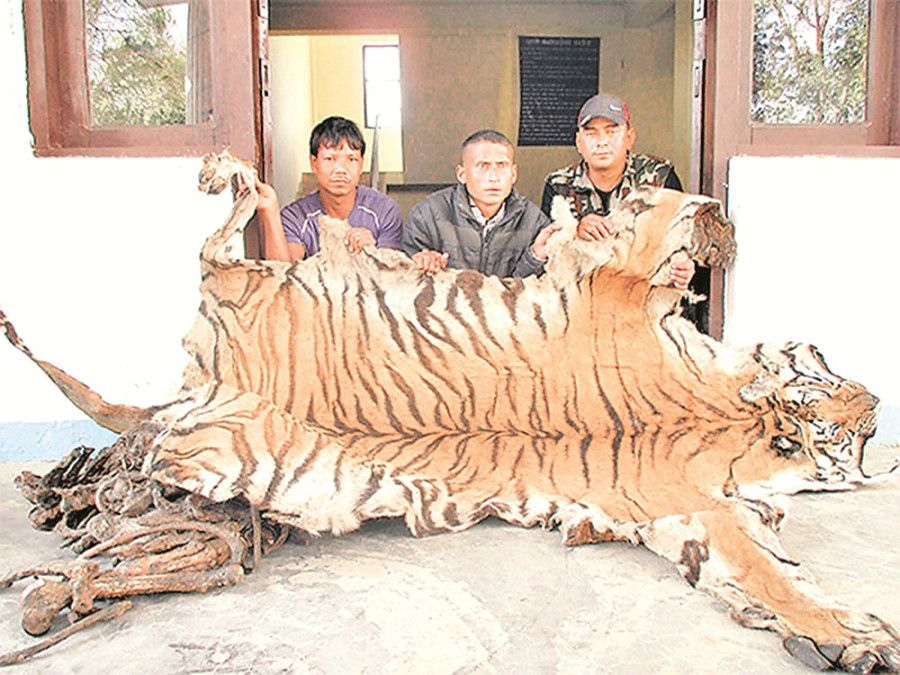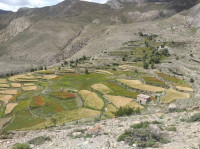National
Police bureau spreading net to nab smugglers
The Wildlife Crime Unit under the Central Investigation Bureau (CIB) of Nepal Police is set to launch four different operations targeting to arrest wildlife poaching kingpins and others engaged in illegal trade of animal body parts.
Pragati Shahi
The Wildlife Crime Unit under the Central Investigation Bureau (CIB) of Nepal Police is set to launch four different operations targeting to arrest wildlife poaching kingpins and others engaged in illegal trade of animal body parts.
Under the Operation Tiger and Operation Wild Eagle, two of the four major operations planned between August 2016 and July 2017, the CIB is targeting to arrest key poachers and traders. Seizure of tiger parts from across the country and beyond after 14 of the endangered animals were reportedly killed between January 2015 and March 2016 is another goal, said Pravin Pokhrel, chief of the unit, on Thursday. Out of 14 tigers hides seized from different parts of the country, at least six originated in Nepal—four of them belonging to Bardiya National Park.
“Our operation is majorly focused on breaking the networks of poachers and traders involved in tiger part trade by arresting the kingpins, who mostly are Nepalis,” he said. Last year, the CIB team mobilised in the far-western and mid-western regions had caught over 20 poachers, mostly those representing the tribal gypsy groups called Banjara from India, and traders in the first phase of the operation between December 2015 and January 2016.
“We want to achieve the first zero poaching year for tigers in Nepal next year,” Pokhrel shared the ambitious target.
The CIB nabbed Sher Bahadur Lama, a key middleman involved in illegal trade of tiger skin and body parts in Nepal and India, from Nepalgunj in May this year. Lama, 57, who hailed from Humla district, was wanted both in Nepal and India. Lama hanged himself hours after his arrest.
Police also arrested Lal Bahadur BK, aka Raj Bahadur, a resident of Surkhet district, in the same month for involvement in killing Namobuddha, the country’s first tiger fitted with a GPS-enabled satellite collar in 2011. Bardiya National Park in the West, home to 50 wild tigers according to the 2013 census, was the major target of poachers last year, along with other tiger habitats in the Far West and the Mid West. Nepal is home to 198 tigers.
“After our major bust last year, our intelligence has found that the movement of Banjaras from India to Nepal has stopped,” he said. “Now our main target is to arrest three Nepali kingpins who are operating an illegal wildlife trade between India, Nepal and China.”
Besides, Operation Ring will concentrate on tracking down and arresting poachers and traders associated with illegal trade of shahtoosh, high-quality wool obtained from the Tibetan antelope Chiru while Operation Floral will focus on measures against smuggling of medicinal herbs and other non-timber forest products.




 11.03°C Kathmandu
11.03°C Kathmandu















